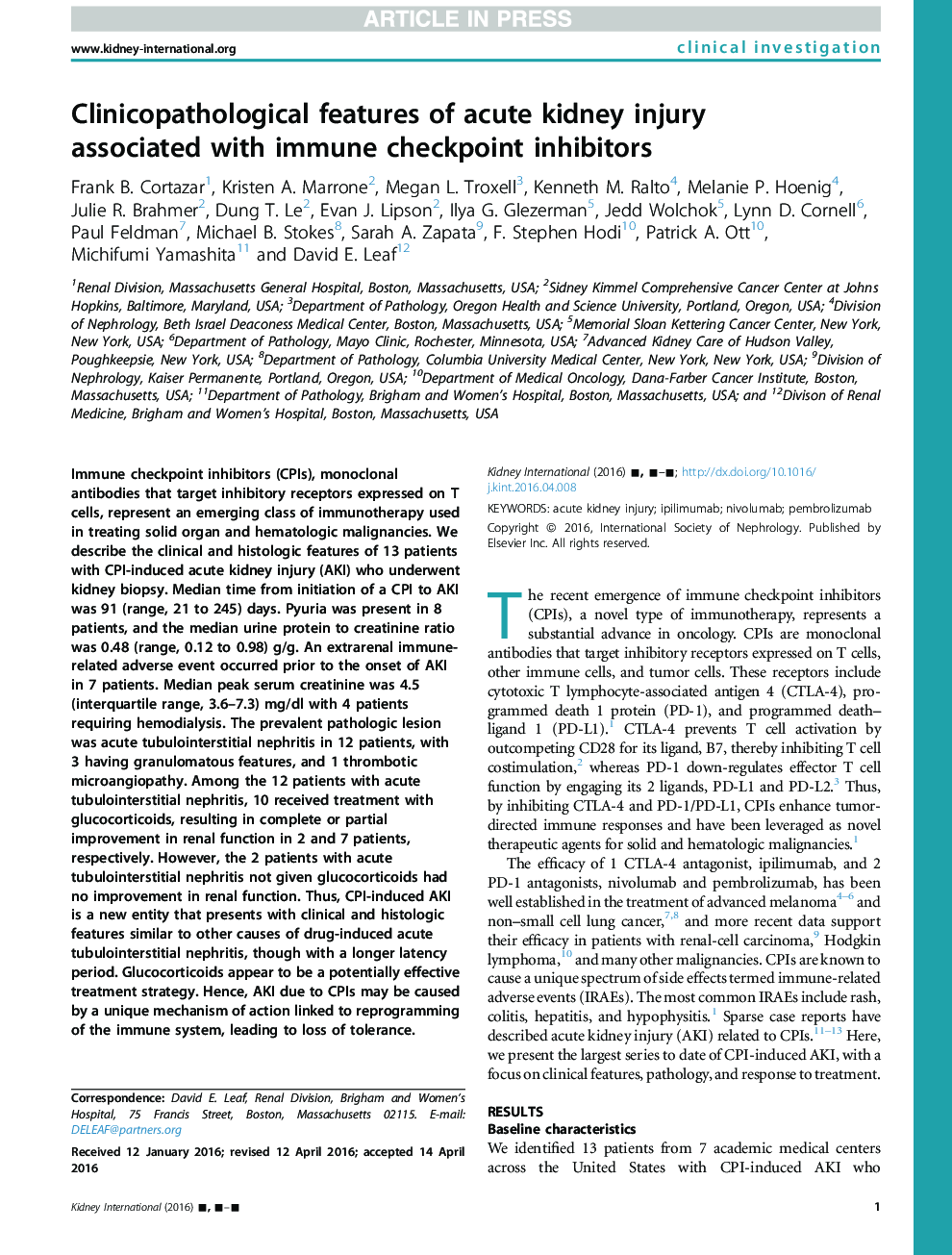| Article ID | Journal | Published Year | Pages | File Type |
|---|---|---|---|---|
| 6161174 | Kidney International | 2016 | 10 Pages |
Abstract
Immune checkpoint inhibitors (CPIs), monoclonal antibodies that target inhibitory receptors expressed on T cells, represent an emerging class of immunotherapy used in treating solid organ and hematologic malignancies. We describe the clinical and histologic features of 13 patients with CPI-induced acute kidney injury (AKI) who underwent kidney biopsy. Median time from initiation of a CPI to AKI was 91 (range, 21 to 245) days. Pyuria was present in 8 patients, and the median urine protein to creatinine ratio was 0.48 (range, 0.12 to 0.98) g/g. An extrarenal immune-related adverse event occurred prior to the onset of AKI in 7 patients. Median peak serum creatinine was 4.5 (interquartile range, 3.6-7.3) mg/dl with 4 patients requiring hemodialysis. The prevalent pathologic lesion was acute tubulointerstitial nephritis in 12 patients, with 3 having granulomatous features, and 1 thrombotic microangiopathy. Among the 12 patients with acute tubulointerstitial nephritis, 10 received treatment with glucocorticoids, resulting in complete or partial improvement in renal function in 2 and 7 patients, respectively. However, the 2 patients with acute tubulointerstitial nephritis not given glucocorticoids had no improvement in renal function. Thus, CPI-induced AKI is a new entity that presents with clinical and histologic features similar to other causes of drug-induced acute tubulointerstitial nephritis, though with a longer latency period. Glucocorticoids appear to be a potentially effective treatment strategy. Hence, AKI due to CPIs may be caused by a unique mechanism of action linked to reprogramming of the immune system, leading to loss of tolerance.
Related Topics
Health Sciences
Medicine and Dentistry
Nephrology
Authors
Frank B. Cortazar, Kristen A. Marrone, Megan L. Troxell, Kenneth M. Ralto, Melanie P. Hoenig, Julie R. Brahmer, Dung T. Le, Evan J. Lipson, Ilya G. Glezerman, Jedd Wolchok, Lynn D. Cornell, Paul Feldman, Michael B. Stokes, Sarah A. Zapata,
